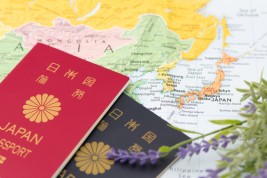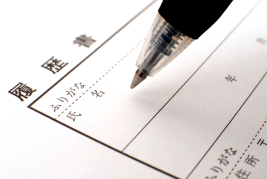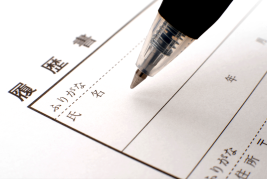Covid-19 travel rules in Japan
Due to the impact of the new coronavirus (COVID19), travel to and from Japan has become increasingly difficult. This article is divided into two sections, “Departing from Japan to a foreign country” and “Entering Japan from a foreign country,” with information on reference websites and the current status of travel information for foreigners.Travel Conditions for Entering JapanDue to the spread of the new coronavirus, the entry of tourists and outgoing foreign residents into the country has been restricted since mid-March, and as of July 24, 2020, those who have been in countries subject to denial of landing will not be able to enter the country unless there is a special reason.More detailed information about the countries subject to refusal of entry to Japan and more detailed information is available on the website of the Ministry of Foreign Affairs (link below).Note that foreigners (including those from the countries and regions where the entry bans do not apply) who will arrive in Japan with a flight via any of those 146 countries or regions which are subject to denial of permission to enter, with a purpose of refueling or transit, will also be denied to enter Japan in principle. This will apply regardless of whether they have entered those countries or regions or not. Foreigners from the countries and regions, where visa restrictions (suspension of visa validity or suspension of visa exemption measures) do not apply, will also be subject to entry bans if transiting through the 146 countries or regions.Reference:Ministry of Foreign Affairs of Japan / Border enforcement measures to prevent the spread of novel coronavirus (COVID-19)Information is updated on a daily basis, so be sure to check the Ministry of Foreign Affairs’ website every time you have to travel.Permission to re-enter Japan for foreign residents and studentsRestrictions on entry to Japan have reached more than 120 countries, and the period of restriction is much longer than expected due to the lack of improvement in the pandemic caused by the new coronavirus around the world. There was no guarantee that a person would be able to enter Japan, even if he or she had to return to their home country to take care of a family member who was in their home country for an emergency, or if he or she was studying in Japan and left Japan for a vacation period.However, taking this circumstance into account, the government announced that on July 29, 2020, they will consider re-entry for those with residency status.On August 29, the Ministry of Foreign Affairs announced that expatriates and international students with a status of residence in Japan would be allowed to re-enter the country on a conditional basis from August 5, in order to prevent the spread of the new coronavirus. Until now, foreign nationals who had departed from a country or region subject to denial of entry were, in principle, not allowed to re-enter the country.Reference:Re-entry of foreign residents / JiJi.com Translated from Japanese to English by GtalentAs stated in the above news article, the government has announced that from August 5th foreign nationals holding residence statuses, such as international students, permanent residents, long-term residents, and work visas, will be officially allowed to re-enter the country.※Foreigners are not yet allowed to enter Japan for the purpose of tourism. There is also a wide range of residency statuses, so please make sure to check the statuses carefully.What do I need to enter Japan again? What’s the procedure?As mentioned above, the Japanese government announced on August 5 that not only Japanese people are being allowed to re-enter the country, but also foreigners with residency status. Since the number of people coming from the countries subject to refusal of entry is much higher than before, the government has begun to strengthen its quarantine measures to prevent more people from becoming infected in the country.From now on, we would like to explain the documents required to re-enter the country.Documents required for re-entry COVID-19 Test ResultThe prescribed format for the certificate must be completed by the local medical institution and signed or stamped by the doctor.Process and Required Documents for Re-entry Confirmation of Submission of Reentry Related DocumentsYou can download the necessary documents for re-entry on the Ministry of Foreign Affairs website.Ministry of Foreign Affairs / Application for Confirmation of Submission of Reentry Documents PassportA valid re-entry permit (including a deemed re-entry permit) must be affixed. Resident Card (zairyu-card)It must not have expired.Pre- and Post-Reentry ProceduresYou must take a PCR test within 72 hours of departing from the country / region in which you are currently residing and certify that the test result is negative.You will need to receive a “Confirmation of Re-Entry Document Submission” from the diplomatic mission in your country or region.When you arrive in Japan, you must take the PCR test again, regardless of your country or region of origin.You must do self-isolation for 2 weeks. The place of isolation will be designated by the laboratory director, and you may be required to stay in the hospital or at home.Can you go abroad during corona season?There are many foreign employees and students who have to leave Japan to take care of their parents, relatives, and children, but there are many countries like Japan that prohibit or restrict the entry of people who have stayed in countries with high numbers of infected people (countries subject to refusal of entry).From now on, we are going to provide information on travel from Japan to other countries for foreigners and international students who have been planning to leave Japan or are considering leaving the country.Travel Information for Leaving JapanMore and more countries are gradually easing their travel restrictions and accepting visitors from Japan. As the measures and documents required for arrival in each country differ, we would like to introduce some websites where you can check the travel situation in each country.Website of the Ministry of Foreign AffairsThe Ministry of Foreign Affairs is arguably the most reliable source of information in Japan.The Ministry of Foreign Affairs’ website has a detailed list of entry restrictions for travelers from Japan to each country. It has a detailed list of restrictions on the entry of travelers from Japan to each country. Ministry of Foreign Affairs of Japan 1 user79 pocketsBorder enforcement measures to prevent the spread of novel coronavirus (COVID…https://www.mofa.go.jp/ca/fna/page4e_001053.html Trip.comTrip.com is an online travel agency that provides up-to-date information on travel conditions in each country. The website provides detailed information about travelers from Japan in each country. jp.trip.com 1 userhttps://jp.trip.com/travel-restrictions-covid-19/https://jp.trip.com/travel-restrictions-covid-19/提携ホテルは120万軒以上、200ヶ国以上を網羅。3000万件を超えるユーザーレビューで、お客様にぴったりの宿選びも簡単。航空券は5,000以上の目的地からお選びいただけます。24時間・年中無休の日本語カスタマーサポートで、お客様の旅をいつでもお手伝いいたします。 ※For countries not listed on the above two sites, please contact the embassy or consulate for details.ConclusionCurrently (as of August 6, 2020), most countries are experiencing a second wave of infections. As a result, information on travel is constantly being updated. It is always a good idea to check with your home country’s embassy or other authorities for final information based on the information and websites provided in this article.















